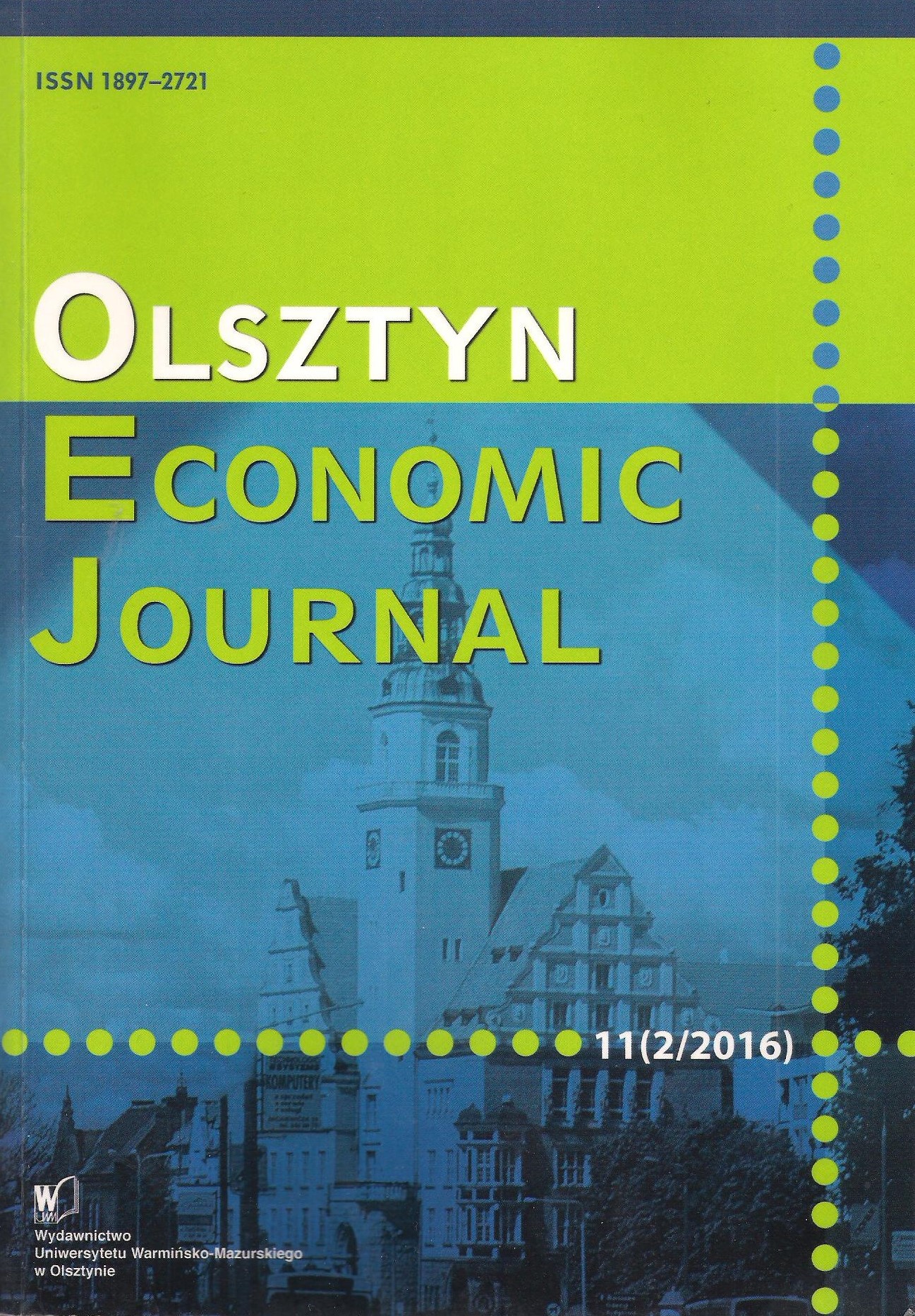Rule-Based Versus Discretionary Fiscal Policy
Rule-Based Versus Discretionary Fiscal Policy
Author(s): Tomasz GrabiaSubject(s): Economy, Financial Markets, Accounting - Business Administration
Published by: Wydawnictwo Uniwersytetu Warmińsko-Mazurskiego w Olsztynie
Keywords: Maastricht Treaty; fiscal rules; discretionary fiscal policy; credibility of fiscal policy;
Summary/Abstract: Fiscal policy can be of a discretionary or rule-based nature. This article discuses selectedexamples of fiscal rules as well as presents the advantages and disadvantages of following them. Theaim of the article is to solve dilemmas about the positive and negative consequences of strictregulations of contemporary fiscal policy. Therefore, a hypothesis is tested concerning whether thefollowing of rules in macroeconomic policy is a more beneficial solution than carrying out a discretionarypolicy. The hypothesis was not clearly verified. On the one hand, it was stated that it is usuallymore beneficial to follow standard rules due to higher reliability for markets. On the other hand, thatentails lower flexibility, which may be especially disadvantageous during a crisis.
Journal: Olsztyn Economic Journal
- Issue Year: 11/2016
- Issue No: 3
- Page Range: 265-276
- Page Count: 12
- Language: English

